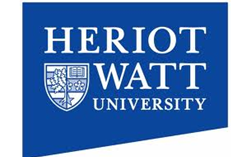A multi-million-pound project lead by Edinburgh’s Heriot-Watt University is using AI to slash the carbon capture and storage design time from 1oo days to just 24 hours.
Researchers at the university’s global research institute for net zero are developing specialist AI techniques for scientific computing, material discovery, and financial forecasting, aiming to enable efficient CO2 capture and storage in deep geological formations.
Hopefully, the project, entitled ECO-AI, will show how bespoke technologies can enable carbon capture and storage (CSS) to be a viable economic option for traditional industries wanting to decarbonise, including steel, chemicals and cement.
Conducted in partnership with colleagues from Imperial College London, the research is expected to leave a framework for future researchers to build upon and play a role in helping the UK Government reach its net zero target by 2050.
Time is of the essence to achieve net zero, especially in Scotland, which has a net zero goal of 2045, the world’s most ambitious.
ECO-AI, with £2.5m in funding from UK Research and Innovation (UKRI), aims to develop energy efficient solvents for CO2 capture followed by permanent storage of captures CO2 into geological storage sites, through various AI techniques.
“Our research has the ability to really advance existing scientific research streams to source suitable options for safe storage of CO2 without consuming too much energy and without the need to deploy expensive and often time-consuming exploratory investigations,” Ahmed Elsheikh, leader of the data and AI research theme at iNetZ+, said.
“Based on the great engagement and interactions evidenced in our workshop and hackathon events, we’re confident that through our applied research and with more collaboration with business and industry, we can collectively make a profound impact on the global shift towards a carbon-neutral future.”
Using AI simulators, standard techniques can be replaced for modelling flow migrations and simulations on a supercomputer that may have previously taken up to 100 days can now be achieved in a day.
“Using our new global research institute as a vehicle to impact global solutions towards decarbonisation, we’re pioneering ground-breaking methods in all major sectors that can propel us toward a net zero future,” Gill Murray, deputy principal for enterprise and business at Heriot-Watt University said.
“At the core of our overall mission is the integration of research-informed teaching that will shape the next generation of leaders and engineers.”
Source: DIGIT

